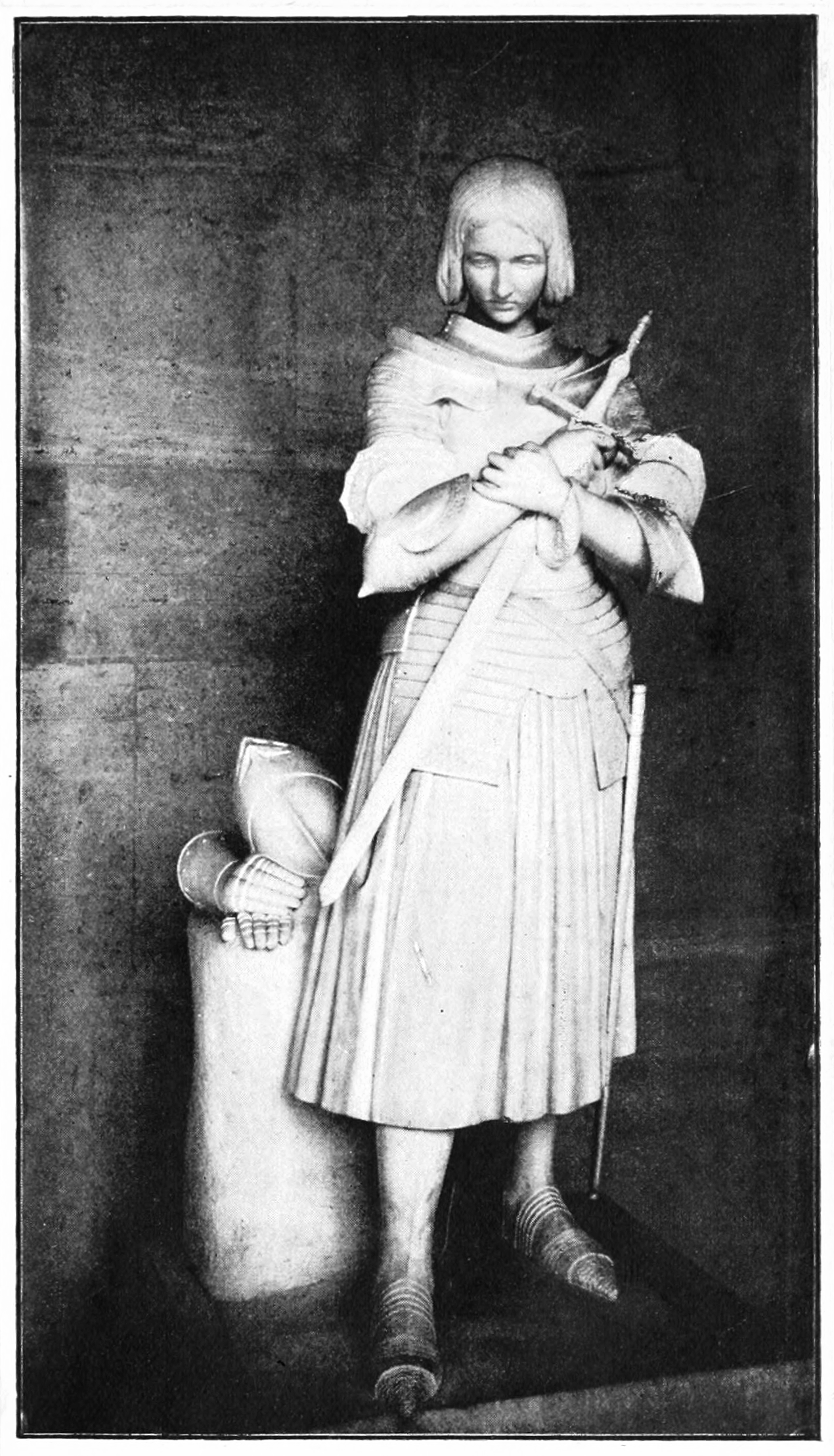 Today is the anniversary of the death of a young woman who has captivated the imagination of many - Joan of Arc. A saint in the Catholic Church, she has fascinated both Catholics and non-Catholics alike. The famous American author Mark Twain deviated from his usual Mississippi setting and sardonic mockery to pen a fictional biography of Joan - Personal Recollections of Joan of Arc, by the Sieur Louis de Conte, which is commonly referred to as Mark Twain's Joan of Arc. He considered it his best work and the one which he enjoyed writing the most. Many lovely children's picture books with Joan as the subject have been published. Catholic author Louis de Wohl, added Joan to his long list of historical novels. Paintings, illustrations, statues and holy cards with her image are easily found. Even Hollywood contributed with Ingrid Bergman's portrayal of the saint in the iconic Joan of Arc movie.
Today is the anniversary of the death of a young woman who has captivated the imagination of many - Joan of Arc. A saint in the Catholic Church, she has fascinated both Catholics and non-Catholics alike. The famous American author Mark Twain deviated from his usual Mississippi setting and sardonic mockery to pen a fictional biography of Joan - Personal Recollections of Joan of Arc, by the Sieur Louis de Conte, which is commonly referred to as Mark Twain's Joan of Arc. He considered it his best work and the one which he enjoyed writing the most. Many lovely children's picture books with Joan as the subject have been published. Catholic author Louis de Wohl, added Joan to his long list of historical novels. Paintings, illustrations, statues and holy cards with her image are easily found. Even Hollywood contributed with Ingrid Bergman's portrayal of the saint in the iconic Joan of Arc movie.
Joan was only on the world stage for two short years, but two years filled with drama and pathos. Drawn forth from her peasant home by insistent voices, she became historically significant, showing once again God's use of the weak to confound the strong. The following account is taken from CTP's Light to Nations, Part I:
La Pucelle
Read the rest here.
Follow Catholic Textbooks via Email
La Pucelle
|
T
|
hree years before the English victory at
Agincourt, an obscure maiden was born in the small village of Domrémy, in
Champagne. The daughter of the peasant farmer, Jacques d’Arc, this young girl
was named Jehanne (Joan, in English). Like other peasant girls, Joan helped out
on the family farm. She was skilled at sewing and spinning, but she could not
read. Yet, Joan was unusual; years later, those who had known her testified
that she was often at prayer in the village church and showed a tender love for
the poor.
In 1425, when she was only 13, Joan began hearing “voices,” as she
called them. Later she came to know these voices as those of St. Michael the
Archangel, St. Catherine, St. Margaret, and other saints. Over time she said
her voices told her that she was to help King Charles VII in his struggle
against the English invader.
The cause of Charles VII in his war against the English and
Burgundians had grown more desperate. In October 1428, when the English were laying
siege to the city of Orléans, Joan’s voices told her to present herself to
Robert Baudricourt, Charles VII’s commander in the neighboring town of
Vaucouleurs. Joan had presented herself to
Baudricourt once
before; then he had told Joan’s cousin, who had brought her to Vaucouleurs,
“Take her home to her father and give her a good whipping.” During her second
visit to him, Baudricourt became more kindly disposed toward Joan. On February
17, 1429, after she told him of a defeat of the king’s army outside of Orléans
(a fact Baudricourt learned a few days later and something that Joan could not
possibly know by herself), he allowed Joan to visit the king.Read the rest here.
Follow Catholic Textbooks via Email
No comments:
Post a Comment